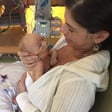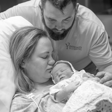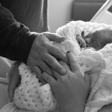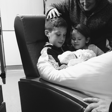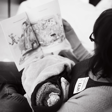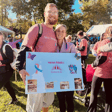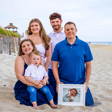
PUSH for Empowered Pregnancy-Owen's Legacy
After Ana tragically lost her son Owen to stillbirth on October 3, 2015, she redirected her focus towards advocacy, prevention, education, and raising awareness. Active under the moniker “Still My Son” on social media platforms, she draws strength and encouragement from the loss community as she tirelessly strives for change in honor of all infants who left too soon.
While nothing could replace the longing for her son in her arms, Ana channels her maternal love into activism and serves as Co-Director of Medical Innovation & Advancement for PUSH for Empowered Pregnancy, a stillbirth prevention non-profit she co-founded with other grieving families in 2021. As a member of the Count the Kicks Influencer Advisory Board, she spearheads initiatives aimed at engaging Latinx/Spanish-speaking communities, ensuring that every parent receives essential fetal movement education to safeguard their babies. Ana also advocates for the adoption of placental measurement, known as EPV, as a standard prenatal care practice to mitigate the risk of stillbirth in babies with undersized placentas. Furthermore, she promotes “Womb Wisdom” through her educational initiative, Sacred Birth Circle, where she conducts interviews with maternal health experts and birthing parents, equipping families with knowledge for their pregnancy and childbirth journeys.
Ana’s Instagram @stillmyson
Also, you can follow her work @sacredbirthcircle
and @stillcountsorg
Get info about Count The Kicks, plus their free app, for fetal movement & kick counting
Rainbow Clinic & Pregnancy After Loss Provider training at Push Pregnancy (Contact us for a free training code courtesy of Ana, until 3/1/24!!).

